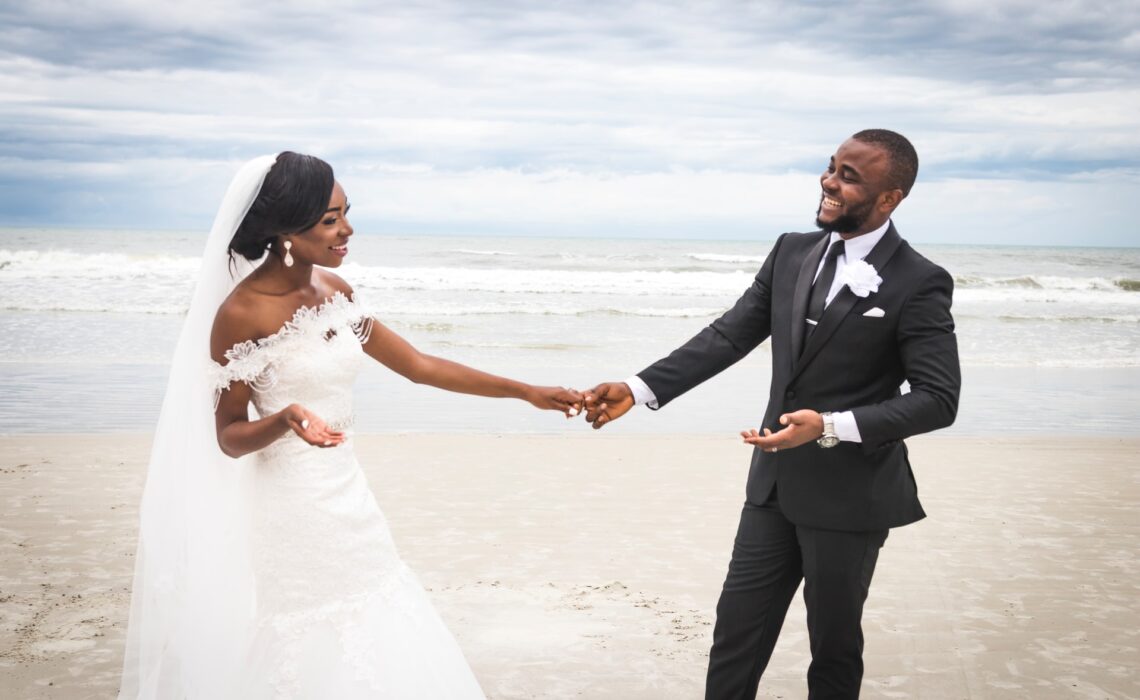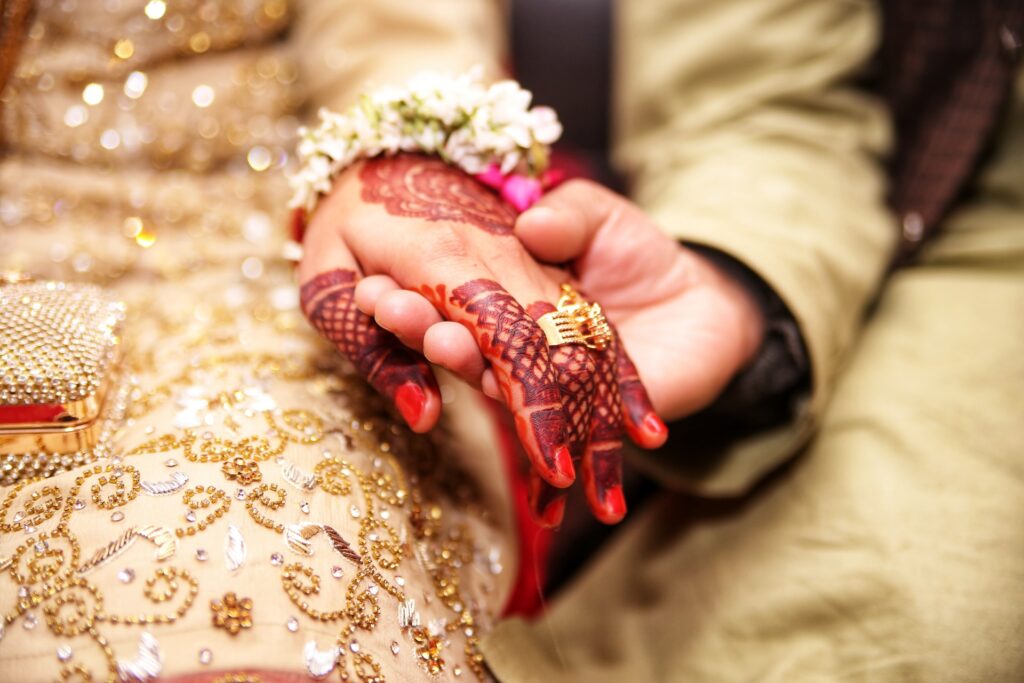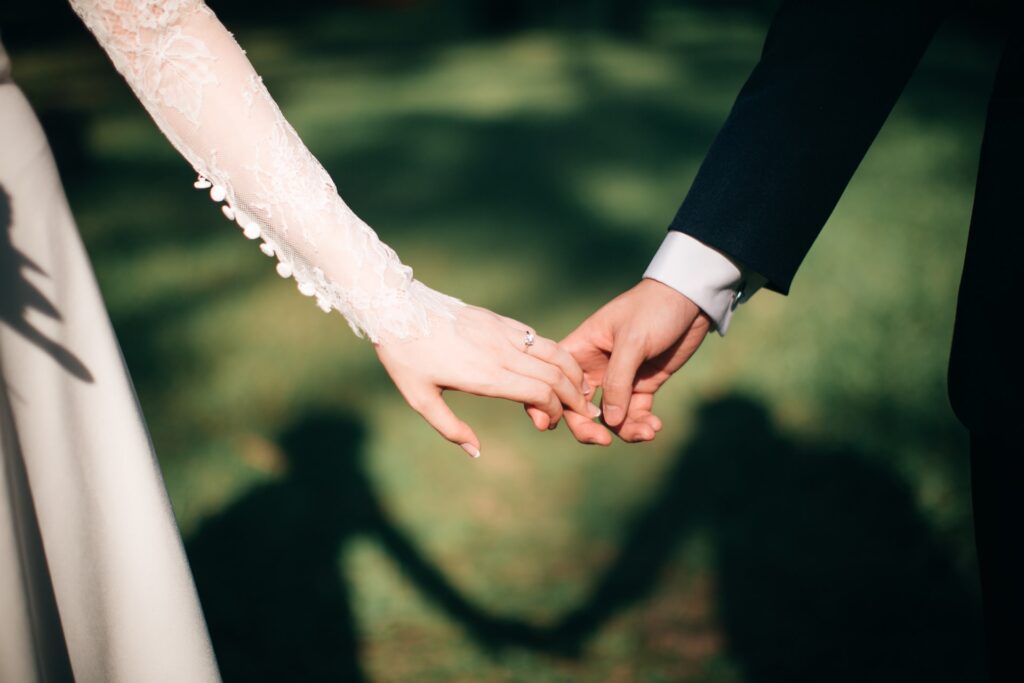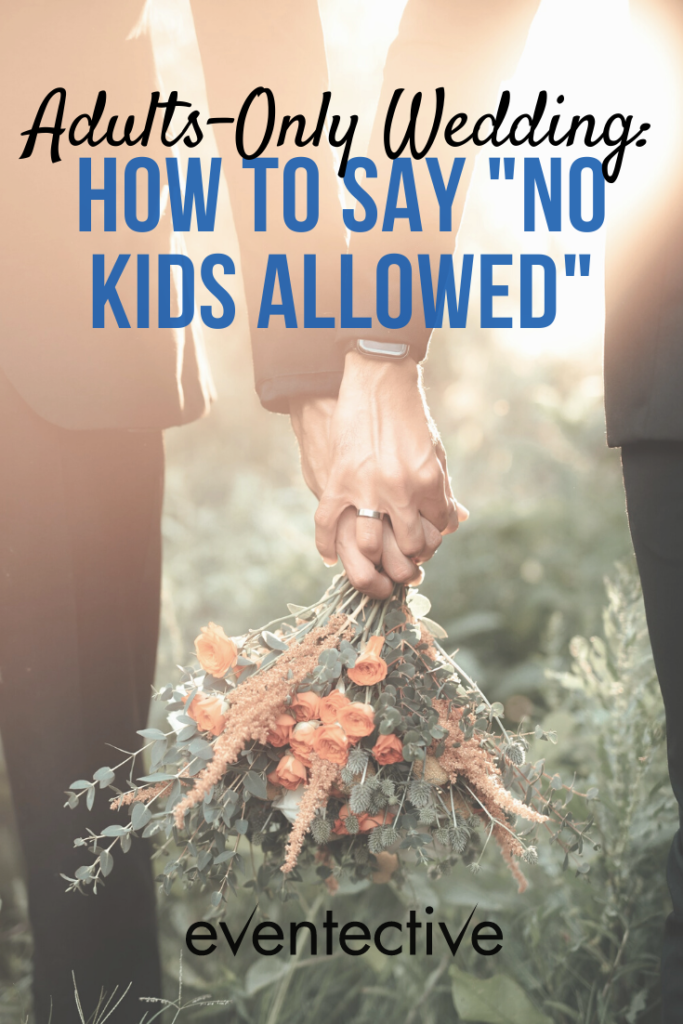
As the wedding industry slowly recovers from the initial wave of the COVID-19 pandemic, the adults-only wedding trend is back in full effect. If you’re reading this, you’re probably considering your own adults-only wedding. But if you’re reading this, you probably also know that a child-free wedding is a polarizing topic as well. In this post, we’ll explore how, when, and where to communicate that you’re planning an adults-only wedding. We’ll also offer some middle-ground alternatives to a kid-free wedding.
Although planning a kid-free wedding can be a hot-button issue among friends and family, there are some practical reasons behind the decision. For starters, the cost of everything—truly everything—has risen since the start of the pandemic. Food, venue, and floral costs were especially affected by postponements and supply chain issues. As a result, headcounts are low to stay within budget. Sometimes, this means inviting an adult guest over a child guest.
You may also be worried about the overall ambiance of your special day. In general, weddings aren’t catered towards a younger audience. There’s a lot of sitting still and being quiet, the food menu is designed for a more formal, “grown-up” palette, and most of the decorations are rented (and fragile!). Any of these reasons can make you nervous to have children present. No matter the reason, if you want an adults-only wedding, you’ll have to clearly communicate that to your guests.
A Note About Adults-Only Weddings

Of course, this is your wedding and you can invite whomever you want. But if you’re going down this road, you need to follow a few of your own rules. First, you should keep the no-kids policy consistent. You shouldn’t say “no kids allowed” and they have a flower girl and ring bearer there throughout the ceremony and reception. Nor should your BBF’s toddler be present when your coworker’s child isn’t.
Second, be prepared for some guests to decline to attend because of your no-kids policy. Some parents may be unable to find sitters, while others may not want to go if their kids can’t also go. Still some guests may need to leave early to accommodate. This is your wedding, and you get to set the guidelines for it. But your guests also get to decline to attend—so just be prepared in case that happens.
How to Say “No Kids Allowed”
While you may have practical reasons for planning a wedding free of children, it’s important to be kind and polite with your wording. These are, of course, your closest friends and family members, and some of these kids may be your own relatives.
To start, address your save the dates and formal invitations to the adults of the household who are invited. This may just include any parents, but it could also include adult children who live with them or use their address (e.g., adult children at college). For example, the invitations should go to Mrs. and Mrs. Jane Smith or John, Jane, and Alex Smith instead of The Smith Family.

If you’re inviting multiple adults from the same household, only send invites to family groups. So, for example, college-age Alex would be on their parent’s invite. But an adult friend, extended relative, or other type of roommate would receive their own invitation to the same address.
Once you’ve addressed the envelopes, the invitation itself informs guests about the adults-only policy. Here, it’s most important to keep it simple and keep it clear:
“This is an adults-only celebration.”
“Due to venue restrictions, we are unable to accommodate anyone under 18.”
“We love your little ones dearly, but the ceremony and reception are adults-only.”
“We happily invite you to our adults-only wedding ceremony and reception on [date].”
Choose the verbiage that best reflects your situation, and don’t be afraid to add personal notes inside the invitations going to households with young children. You can even send those parents home with special favors for the kiddos to include them in some way.
When to Say “No Kids Allowed”

When planning an adults-only wedding, give parents as much time as you can. You should absolutely include a note in your save the dates as well as your formal invitations. Typically, save the dates go out six to eight months before the wedding. Destination weddings and holiday weddings, however, should go out 8+ months beforehand. This gives guests plenty of time to schedule time off work, book their flights and hotel rooms, buy a new outfit, and get a gift.
With parents, attending an adults-only wedding means they have to do all of that plus find a sitter, coordinate meals while they’re away, and work with the sitter on any specific requests or needs. Attending a wedding is a longer time commitment than an average babysitting session, so there may be different or special needs to meet.
Parents may also make different decisions about attendance if they can’t bring their kids. For example, they may head home after instead of spending the night nearby, or they may decide to bring the babysitter with them to watch the kids at the hotel while they attend the wedding. All of this takes time, so give your guests plenty of it!
Where to Say “No Kids Allowed”

As we’ve already mentioned, you should let guests know as soon as possible—with the save-the-date cards. But you should also remind them in the formal invitations. Guests typically mail back the RSVP card but keep the actual invitation card, so you’ll want to put it clearly on the invitation card itself.
If you want to be extra careful, you can reinforce the adults-only policy on the RSVP cards, too. You can include only the names of the invited adults, or you can leave a line, check box, etc. for the invited adults. If you’re using an online RSVP tool, you can easily do this. First, you can add your kid-free note to the landing page for guests to see when they respond. Second, you can list only the names of the invited adults. Typically, you upload your guest list to an online RSVP tool and guests select their names from the predetermined list. So if you only include the names of those invited, only those individuals can respond.
Finally, you should include a note on your wedding website, too. It doesn’t have to be on the main page, but include it on the details page, on any RSVP pages, in your FAQ section, and even the directions page if your venue has specific requirements.
“No Kids Allowed” Alternatives

Adults-only weddings can be polarizing, but your wedding doesn’t have to be all or nothing! Instead of saying “kids stay home,” some couples offer on-site child care for parents. That way, parents can be fully present during the event, but they don’t have to pay for or coordinate a babysitter (unless they want to) and they aren’t too far away from their kiddos.
This does require a specific type of venue, so you’ll want to include that criteria in your hunt. But it’s a generous way to not invite little ones without making that difficult for their parents. Or risking that the parents don’t come at all!
Conclusion
You can absolutely have an adults-only wedding if you want to. But you should also absolutely communicate that clearly to your guests, and prepare for some parents to decline because they can’t bring their kids. If you’re worried about upsetting friends and family, you can always call those with small children or include a personal note in the invitations. Not everyone will be upset, but it also doesn’t hurt to take a personal approach to such a personal decision.
Are you nervous about planning an adults-only wedding? Would you consider offering on-site childcare for guests?

